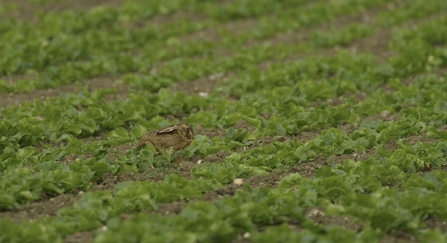We are living through a time of great uncertainty, with geopolitical instability increasing following Russian’s invasion of Ukraine. As well as the tragic effects and appalling humanitarian crisis unfolding in the immediate region, the war has potential ramifications for global security at large if the conflict escalates further.
At home, the UK will see further energy and food price increases, on top of existing rises in the cost of living that mean millions of households are struggling to heat their homes and afford nutritious food.
The UK Government is set to publish an Energy Independence Plan in response to these concerns, and we are already seeing farming lobbyists push for greater intensive farming to shore up national food supply. Unfortunately, both these approaches fail to recognise the complexity of the challenge and the need to put a thriving natural environment at the heart of any solutions.
Last week, The Wildlife Trusts joined 30 other organisations to sign a letter urging the UK Government to support vulnerable households, tackle climate change and cut gas use. The new Energy Independence Plan soon to be published by the Government places all of the focus on increasing UK energy security through further drilling for oil and gas from the North Sea and accelerating the roll-out of large-scale wind and solar power developments.
As well as risking the achievement of net zero and efforts to tackle climate change by expanding new fossil fuels, the plan will ultimately fail to protect households from rapidly rising gas prices in the short-term. The majority of oil and gas licences and renewable development contracts will take at least 5-10 years to generate energy, which will be too late to help the estimated 1 in 3 UK households that could be facing fuel poverty this winter.
The plan is also too narrow in scope - failing to acknowledge powerful solutions to reduce energy demand and increase the proportion of renewables in our energy system, such as improving insulation and financial support for community energy.
While the large-scale build-out of renewables is a critical part of the solution to increase energy security and tackle climate change, they are not immune from causing environmental harm. When sited in the wrong places, renewables can prove devasting to ecosystems, including causing damage to habitats that are essential for storing carbon, such as peatland, salt marsh and deep-sea mud.
By placing all their eggs in one basket, through the large-scale development of energy infrastructure, the Government is adding to the already acute levels of pressure on our wildlife and habitats from human activity.


